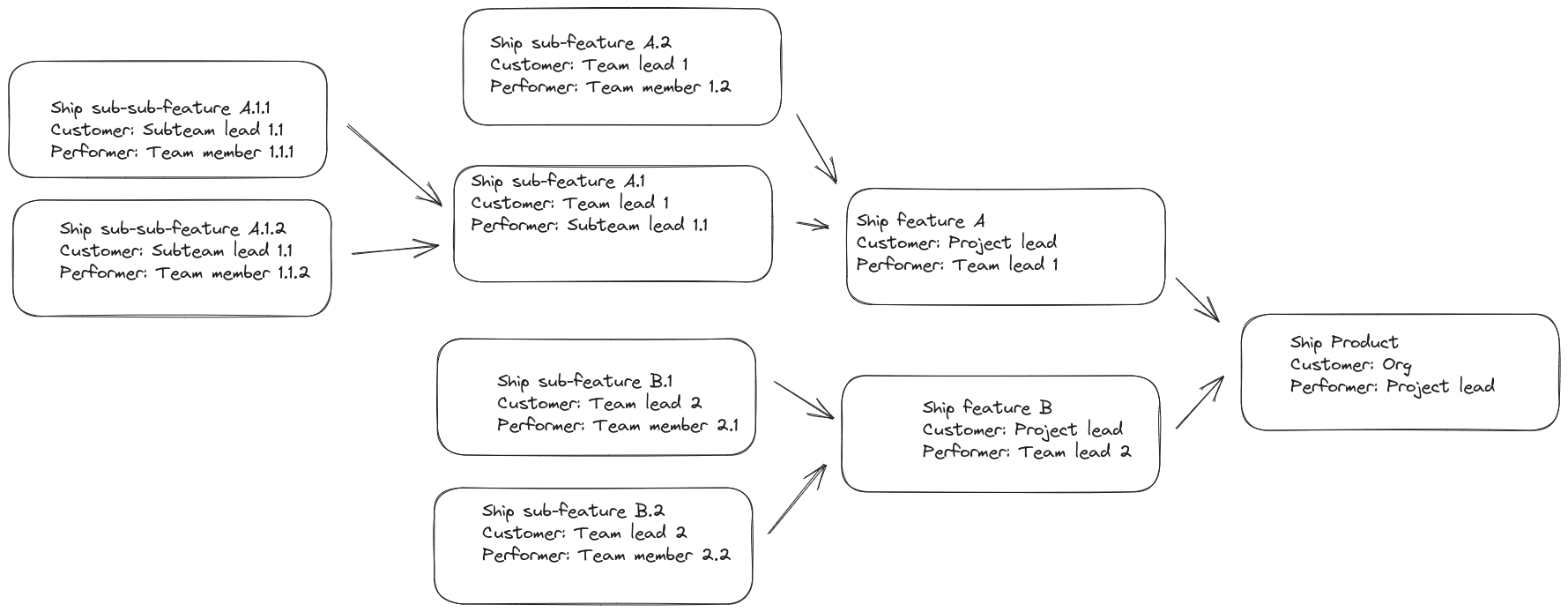FAQ
Intra-team and inter-team priority conflicts
Q: Imagine a situation when an outside-of-team task was proposed, and you, as a potential performer, perceive it as having higher importance than your current team-task. In the situations when confirming with the lead (I assume that would be a natural thing to do) is not possible (e.g. there is a hard deadline happening too soon - “can you do this in the next two hours?”), what is the best thing to do? On the one hand, taking this task (or in the edge case, multiple tasks) will affect your performance of your planned tasks (instead of working on planned X, I had to spend the day working on Y because it seemed like an emergency) and it might not be aligned with the view of the team lead that you couldn’t have learned in time (e.g., because of the timezones). On the other hand, blindly declining all such tasks doesn’t work well in case of emergencies, and even though emergencies in our context don’t happen that often it feels like a good idea to have a plan for when it happens.
A: It’s hard to give a universally applicable rule for this situation - it’s up to your judgement and what you’ve agreed with the team lead. It also has a lot to do with how frequently this happens - if this happens once a month or so, doesn’t seem like too big a deal to handle case-by-case (e.g., if the new task seems to be very important, just do it), but if this is happening multiple times a week or such it’s a clear indication that the division of teams & tasks is probably wrong, and you should raise this to your team lead (or the project lead).
Deadline incentive concerns
Q: Another imaginary situation: a customer sets a hard deadline that cannot be achieved (for simplicity, for reasons that are not related to the immediate performer). One potential performer is aware of that and communicates it to the customer, the other is not and accepts the task. Repeated multiple times (not necessarily too many), it might create a situation when performers are incentivised to agree on unrealistic deadlines just to, well, have any tasks to perform (performer #2 might not complete tasks in time, but performer #1 doesn’t take them, which might be perceived as a worse thing). How to get out of such loop?
A: The customer is also responsible for delivering, they are most likely performer for a higher-level task - so it’s in their interest to find performers who make realistic time estimates and keep them. This system does rely on customers being reasonable and consistent, but if they aren’t no system will fix that.
Project lead customership
Q: Does the project lead have to be the customer of all tasks? For example, if we have a sub-team Y within a team X, does sub-team Y also have a team lead or will this be the same lead as team X? And who will be the customer? Put differently, do all tasks completed by a team need to be approved by the team lead?
A: No, the project lead will only be the customer for top-level tasks, generally (though project lead is a role more than a person, the person could also play other roles). Teams can determine sub-team compositions and sub-team leadership within themselves freely - the team lead should be the customer for all top-level team tasks (so sub-team-leads would perhaps be the performer for mid-level team tasks in some category or such) - so, effectively, the team lead does need to be the ultimate customer for all tasks within the team, but they can delegate arbitrarily large sub-tasks of those to sub-team leads if they want. Does that make sense (and answer your question)?
Here is a diagram for clarity:
